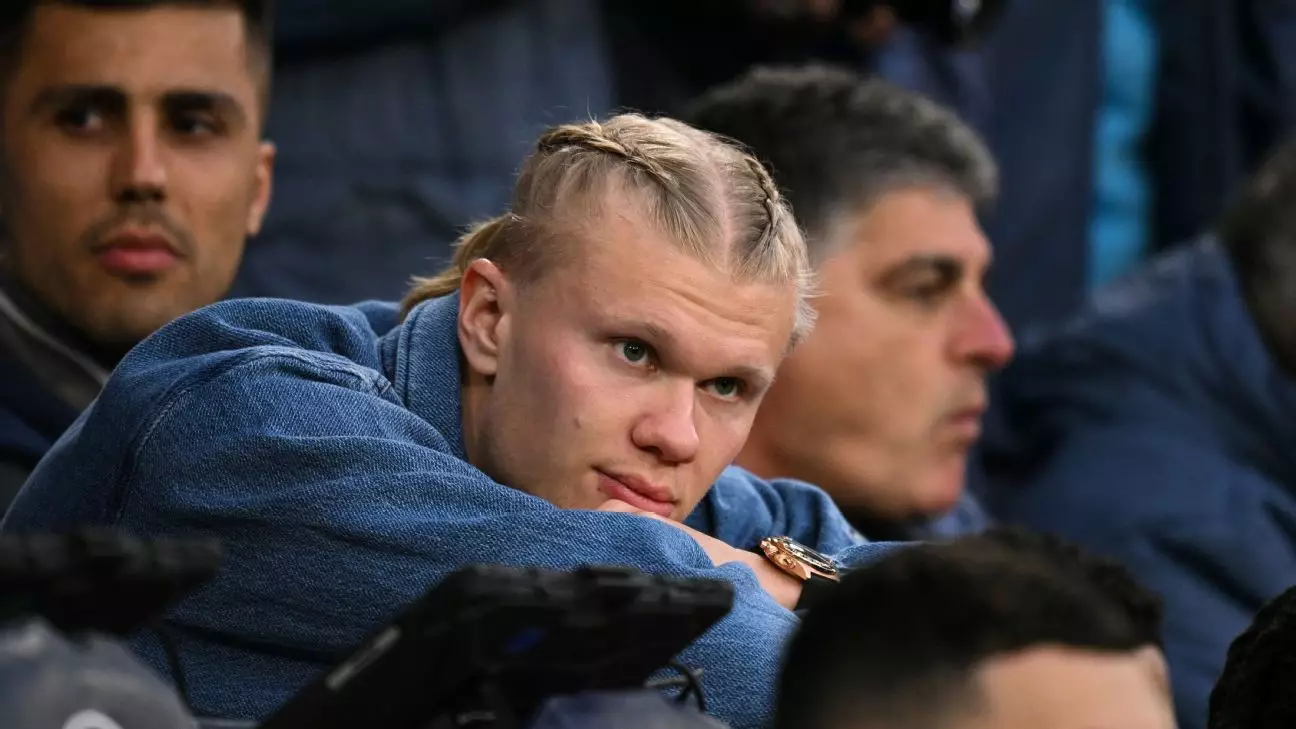In a candid revelation that struck a chord with both fans and critics, Erling Haaland has openly acknowledged the shortcomings of Manchester City this season. Rather than attributing their failures solely to external circumstances, the prolific striker placed the onus squarely on both himself and his teammates. This self-reflection could serve as a much-needed wake-up call for a squad that has basked in glory but now grapples with mediocrity following the loss of their Premier League crown to rivals Liverpool.
Haaland’s acknowledgment of the “hunger” that has seemingly waned within the squad is particularly noteworthy. For a team that has tasted unparalleled success, including stringing together four consecutive league titles and securing a historic treble in 2023, such a drop-off in motivation can signal a deeper malaise. This is not just about the tangible aspects of the game, such as injuries to key players like Rodri; it’s about the psychological fabric of a squad that may have grown complacent after years of dominance.
The Weight of Expectations
Expectations at Manchester City are monumental, especially after their recent successes. The pressure to perform at the highest level can often lead to a sense of entitlement, with players sometimes taking their position for granted. Haaland’s forthright admission that he—like many others—has not met these expectations this season is particularly revealing. It suggests a collective need for introspection; no player should be above scrutiny.
Injuries, although a legitimate issue impacting their performance, are a common plight within the demanding landscape of modern football. Instead of using this as a crutch, Haaland’s perspective encourages a mentally proactive approach. This could foster a renewed sense of urgency within the squad as they strive to regain their former glory. His readiness to return from injury and contribute to the team’s efforts reflects a promising commitment to the collective cause — a much-needed spark for a side that has been lacking in recent weeks.
A Turning Point?
As Manchester City prepares for the coming weeks — with the FA Cup final against Crystal Palace and the quest for Champions League qualification looming — Haaland’s words could serve as pivotal in reigniting the collective spirit of the team. Coming off a month-long injury layoff, it is crucial for the forward not only to return but to reinvigorate those around him. His 30 goals in 40 appearances this season demonstrate that he is capable of being the game-changer City desperately needs in these decisive moments.
Haaland’s admission that “we haven’t been good enough” is not merely a lament; it is a clarion call for all involved with Manchester City to recommit to their identity as an elite football club. It reinforces the notion that, in football, talent alone will not suffice; relentless ambition and tenacity must underpin success. Failure to recognize this could result not only in lost trophies but also in a lost legacy. As the team approaches its crucial fixtures, the opportunity to transform dissatisfaction into determination is palpable, and Haaland’s role in this renaissance could prove pivotal.

